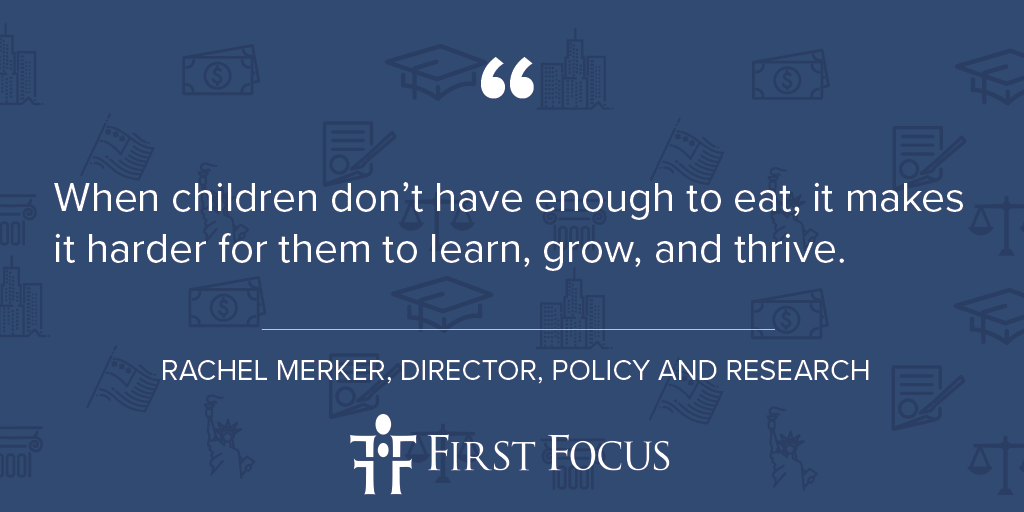
When children don’t have enough to eat, it makes it harder for them to learn, grow, and thrive. Unfortunately, the Department of Homeland Security (DHS) recently published a proposed rule on the Federal Register that will make it harder for immigrant families with children to put food on the table.
The proposed rule would allow government officials to now consider the use of an applicant’s broad range of services such as Medicaid, the Supplemental Nutrition Assistance Program (SNAP), and housing assistance when determining eligibility for green cards and/or lawful admission to the U.S. This drastic expansion will cruelly force parents to choose between meeting their family’s basic needs or keeping their families together.
DHS claims it will not include a child’s use of SNAP in the public charge rule. But the agency also admits that, due to fear and misinformation, some parents will likely disenroll their children, even if they are eligible (3.9 million U.S. citizen children with immigrant parents accessed SNAP in 2015.)
New, worrisome data shows that immigrant families who have been in the United States for fewer than five years and who are legally eligible for SNAP have reduced their participation in the program by nearly 10 percent in the first half of 2018. The chilling effect of the public charge rule could be at least one factor driving these numbers.
Furthermore, SNAP is a pooled household resource—if even one member loses access to the program, there will be less food available for everyone, including children. Unsurprisingly, DHS says that an “indirect” cost of the rule will be increased rates of obesity and malnutrition, especially in pregnant and postpartum women, infants, and children.
This proposed rule is not only morally unconscionable, it is economically foolish. SNAP significantly reduces child poverty and stimulates the economy (every $5 in SNAP benefits generates $9 of economic activity). It also fights food insecurity in children—creating cost savings in the form of better child health, educational attainment, and long-term productivity. This is especially important for the children of immigrants, who face a higher risk of food insecurity than their peers in the same income bracket.
DHS has proposed this rule knowing full and well that it will mean more children in America are don’t know where their next meal is coming from. No family should have to go hungry in order to stay together.
First Focus strongly opposes this rule and its harmful repercussions on children and the country as a whole. We urge individuals and organizations to comment in opposition by the deadline of December 10th, 2018.